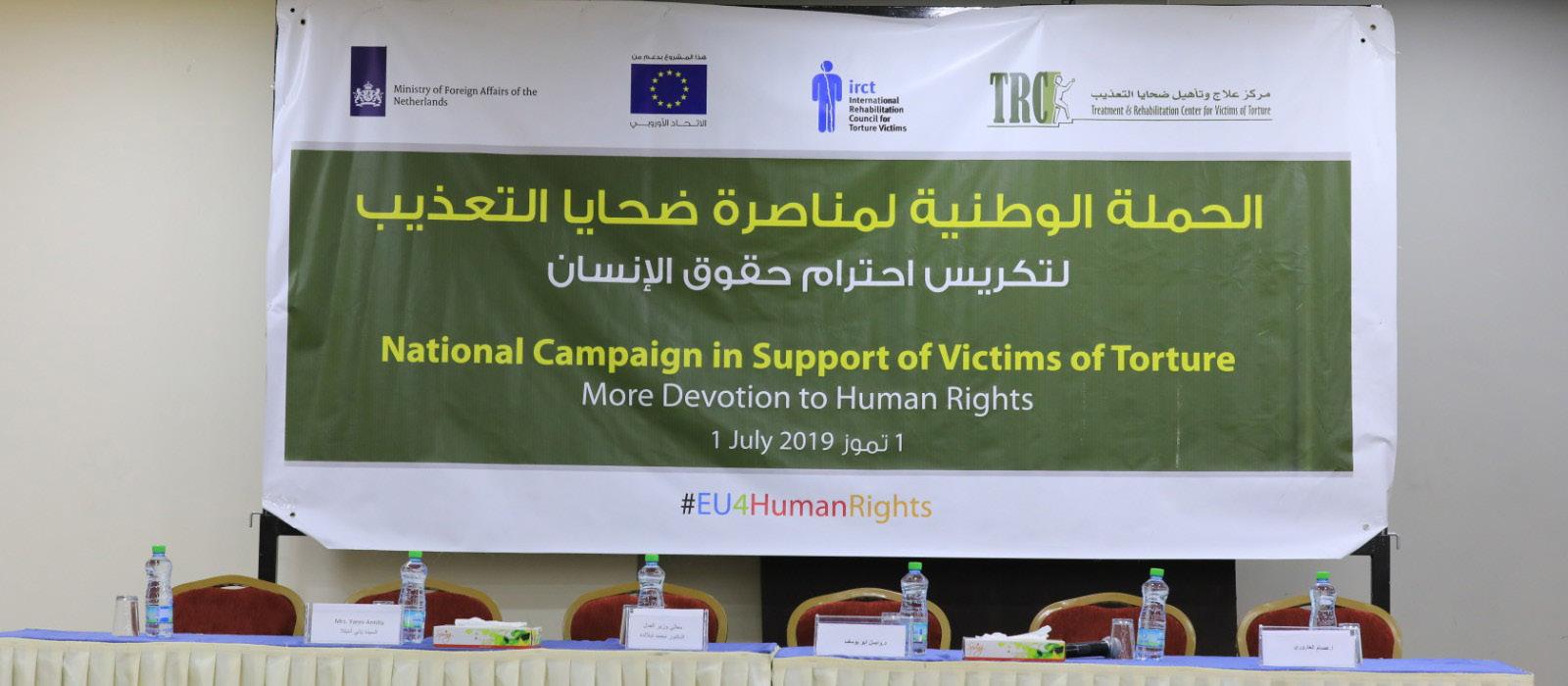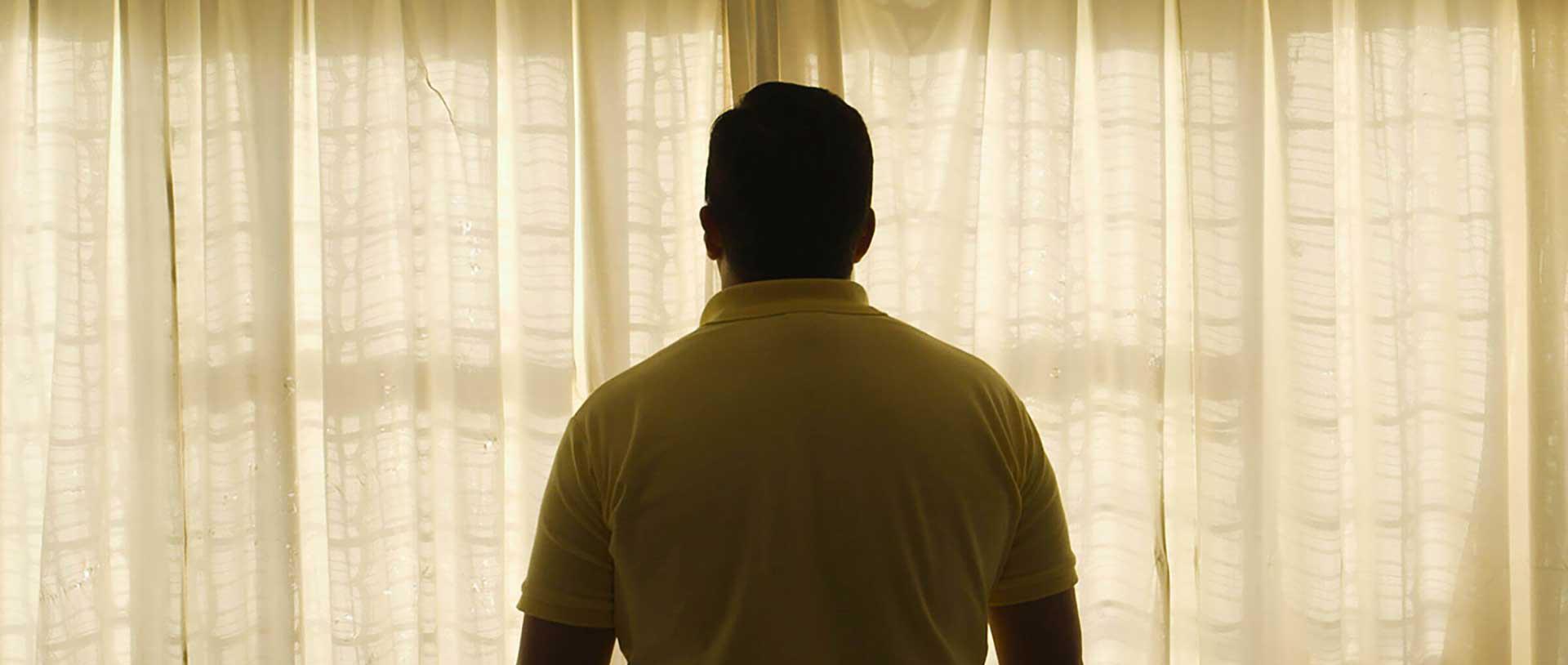
5 minute read
Advocating: rights and justice for torture survivors
Our advocacy programme made a significant impact on the prevention of torture, access to justice and reparations for survivors. Globally, we secured higher standards on documentation, investigation and prosecution of torture cases, and torture survivors’ rights during transitional justice processes. We have surpassed all targets in our Advocacy Programme in 2019. As a result, we can improve documentation, monitoring and prevention of torture in detention. Perpetrators will face prosecution and sanction and survivors’ needs. This will be fundamental to the reparation programmes in transitional justice processes.
At national level, we intervened in cases and policy dialogues in more than 20 countries in 2019. With partners such as Human Rights Watch, Redress and Reprieve, we raised public and political attention to torture cases in Bahrain, Brazil, India and Nepal. In Palestine, we used data documenting torture committed by the Palestinian Authority to start a dialogue with them. This resulted in the submission of its first status report to the UN Committee against Torture. The review of Palestine, set to take place in 2020, is seen by our local member as a key step towards addressing and preventing torture by the Palestinian Authority.
Advertisement
We have made significant contributions to recommendations in four States through the UPR and UNCAT. Our advocacy relies on the contextual local knowledge and advocacy priorities of our members. This collaboration is therefore key when we advocate and influence State reviews by the UNCAT and UPR. The impact we showcase steams from the knowledge of our members. This, combined with our institutional support and our extensive network with UN decision makers, have secured fundamental State change in 2019. Our members in Bolivia, Chile, Kenya, Mexico, Turkey, and South Africa were all successful in addressing their recommendations through advocating with the UPR and UNCAR in 2019. Their policy issues included key torture prevention measures, investigation, documentation and prosecution of torture crimes and improvements to reparations programmes for historical abuses and the establishment of state sponsored rehabilitation services. Several countries have already taken specific action to execute the recommendations promoted by us. We can see our biggest impact was in Mexico, where our recommendations on specific improvements to the state rehabilitation programme have been included in the new national anti-torture action plan. Our Mexican member is in advanced dialogue with the State rehabilitation programme (Comisión Ejecutiva de Atención a Víctimas) on technical assistance and capacity building to implement the CAT recommendations. Our member reports that the recommendation from CAT was essential in convincing the new Mexican government to act on this issue.
We supported or intervened in policy dialogues in more than 20 countries
We continue to break the deafening silence on torture and push for more dedicated national anti-torture action by engaging with the Universal Periodic Review (UIPR) and UNCAT. By advocating for the rights of torture survivors by ensuring that States take the correct measure, we provide a voice for the thousands of survivors worldwide. In 2019, we supported our members in four countries to secure recommendations on their priority areas—significantly strengthening their national advocacy. In two countries, State agencies have already made promising implementation commitments. We further developed the monitoring of the longer-term global impact of our advocacy work. This shows how UNCAT is applying a unique IRCT policy position on the protection of torture survivors in asylum proceedings in its decisions on individual complaints. The first reparations for torture awarded by the ECOWAS Court of Justice on the basis of IRCT evidence is provided to the survivors by the Gambian Government; and the Government of Mexico has responded to several years of IRCT advocacy by starting to implement our suggested improvements to its national rehabilitation programme for torture survivors. While comprehensive monitoring of the glob
Fighting for anti-torture legislation in Palestine
Over the past two years, TRC Palestine has consistently been advocating and providing technical support to the government to ensure to engagement with the UNCAT. For Palestinian anti-torture NGOs, the effective participation of the State in international human rights mechanisms is no trivial matter; it has practical effects on their daily work. For example, Palestine still has no specific anti-torture legislation that defines and criminalises torture while providing redress for its victims. Furthermore, despite concerted efforts from civil society organisations, the government has consistently delayed its plans to establish a National Torture Prevention Mechanism. Data collected by TRC shows that their clients face a wide range of physical and psychological problems as a consequence of their trauma. Many clients struggle to find work, to socialise or even to carry out basic day-to-day functions. ”The submission of the State report to the UNCAT review was a major milestone,” said Dr Khader Rasras, Executive Director of IRCT member TRC. “It is the first time ever that the State can enter into a dialogue with international experts and local partners to find the best way to eradicate torture in our society.”
al long-term impact of IRCT work comes with significant challenges, we continue to work on expanding this aspect our advocacy in the coming years. We are also working to improve the ability to direct more human and financial resources to long-term engagement in individual countries.

Torture in Rio, Brazil
In 2019, Human Rights Watch asked us to review forensic evidence in cases of killings and torture by the police in the favellas in Rio, Brazil. Based on IRCT evidence indicating that the police had tampered with the crime scenes, the public prosecutor is now examining the possibility to prosecute the police officers involved. Through the work of Human Rights Watch, our evidence received extensive press coverage in Brazil.

Osvaldo was tortured to confess to a kidnapping he did not commit. With the help of our member in Mexico, CCTI, he was proven innocent and received support to rebuild his life.
"These recommendations are essential in holding the Government accountable for its obligations to torture victims. We will work with our civil society partners to push the state to take action. We believe that a good start would be for the State to make a public declaration from the highest office that torture will not be accepted that and all victims should never be treated as criminals but as citizens with rights."
– Mr. Cristian Urbalejo, IRCT member in Mexico CCTI









